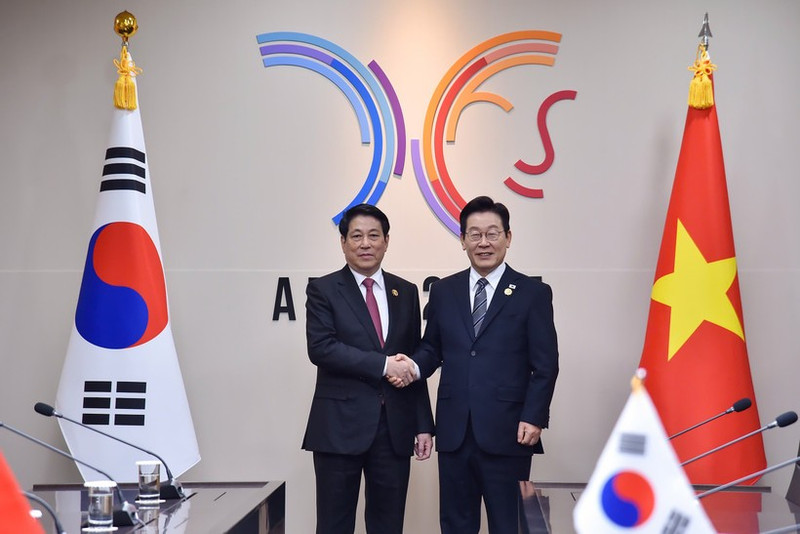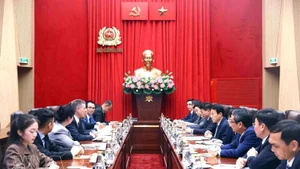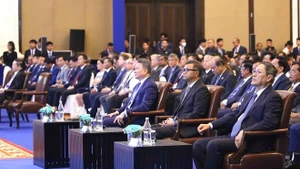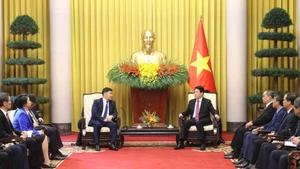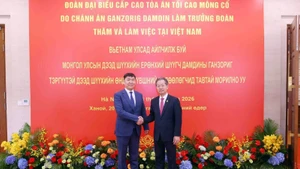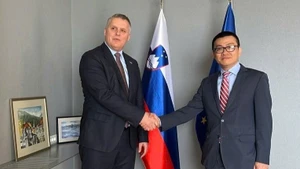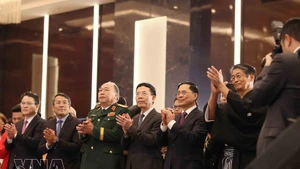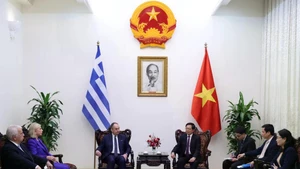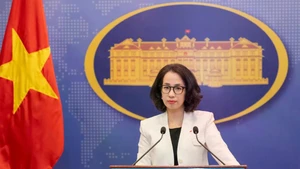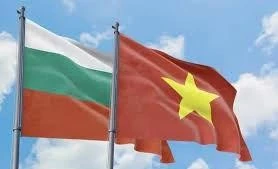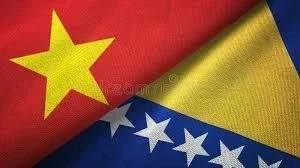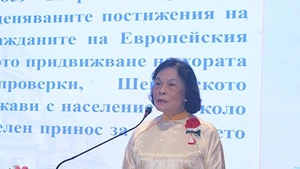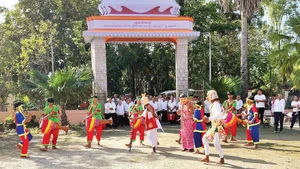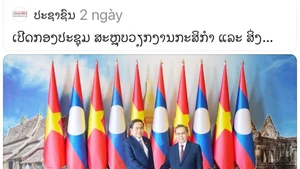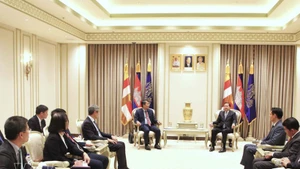At the talks, President Lee affirmed that the RoK always considers Viet Nam a key partner in implementing its foreign policies in the region, and emphasised that President Cuong's working trip is of important significance in common cooperation for peace and prosperity in the Asia-Pacific region.
President Lee congratulated Viet Nam on its development achievements, including its current economic growth of over 7%. He affirmed that the RoK is ready to continue to accompany Viet Nam in the next stages of development.
President Cuong, for his part, sincerely thanked President Lee, the Government and people the RoK for their warm, friendly and thoughtful reception, and conveyed the greetings and warm regards of Party General Secretary To Lam and senior leaders of Viet Nam to the Korean President.
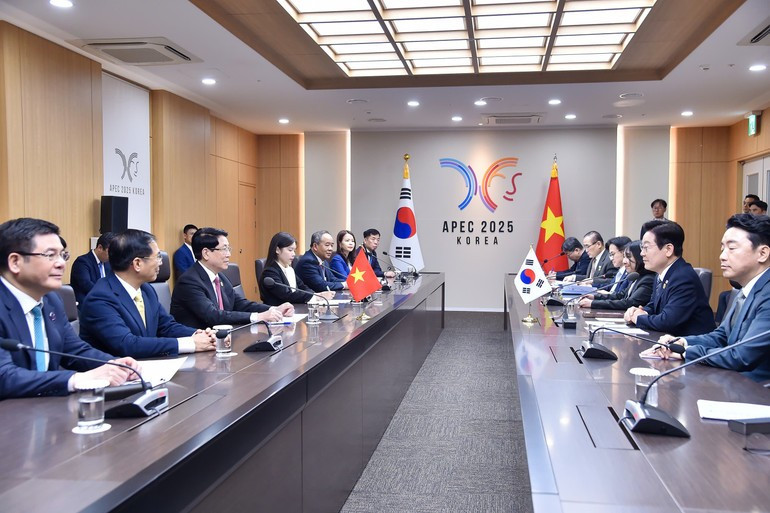
The Vietnamese leader said he was pleased to see that after more than 30 years of establishing diplomatic relations, the relationship between the two countries has been continuously consolidated and developed. Viet Nam and the RoK have become reliable partners, closely cooperating at the strategic level, and are close friends, understanding each other.
Viet Nam consistently attaches importance to the relationship with the RoK and hopes that the cooperation between the two countries will continue to have new, more substantial, effective and sustainable changes in all fields, President Cuong said.
The two leaders agreed to continue promoting delegation exchanges and high-level and all-level exchanges through various channels, effectively coordinate the implementation of existing cooperation mechanisms and promote the substantive implementation of signed cooperation documents between the two countries, especially the agreements reached during the State visit to the RoK by General Secretary To Lam in August 2025. They consented to promote mutually beneficial economic cooperation, in line with the development goals of both sides, creating a major and substantive shift in cooperation.
President Cuong suggested the two sides coordinate to implement substantive measures to soon reach the bilateral trade target of 150 billion USD by 2030 in a balanced and sustainable direction. He affirmed that Viet Nam will create favourable conditions for Korean enterprises to confidently invest for a long-term in Viet Nam.
President Lee emphasised that the RoK continues to consider Viet Nam an important strategic partner in economic, trade and investment cooperation, and pledged to increase quotas and expand the industries receiving Vietnamese workers. He agreed to cooperate in technology transfer and development of supporting industries in Viet Nam; and continue supporting Korean enterprises to expand investment in Viet Nam, especially in important areas such as infrastructure, energy, and new urban construction.
The two leaders agreed to realise the implementation of science, technology, innovation, digital transformation and human resource development cooperation as a new pillar in the bilateral relations. They agreed to step up educational, cultural and people-to-people cooperation activities to create deeper connections and understanding.
President Cuong proposed the Korean side continue to pay attention, have policies to protect legitimate rights, ensure security and safety, and create all favourable conditions for the Vietnamese community to feel secure in living, studying, and working for a long-term in the RoK.
Also within the framework of the talks, the two leaders discussed international and regional issues of mutual concern. President Cuong congratulated the RoK on successfully organising the APEC Economic Leaders’ Week 2025, and hoped that the East Asian country would support and coordinate with Viet Nam to successfully organise the APEC Economic Leaders’ Week 2027.
The two sides agreed to closely cooperate and support each other in regional and international forums of mutual interest; and together promote the early upgrade of the ASEAN-Korea Free Trade Agreement and the implementation of the Mekong-RoK Summit in the coming time.
The two sides shared a common strategic vision on maintaining peace and stability in the East Sea/South China Sea, and ensuring legitimate and legal rights in accordance with international law and the 1982 United Nations Convention on the Law of the Sea (UNCLOS).
